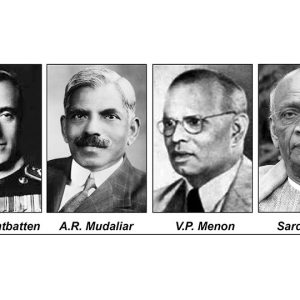The land and its people, according to whatever we get to read in the pages of their history spanning several centuries, have weathered tough times under the rule of both indigenous monarchs of all hues and aliens, some of whom reigned only in parts of the land while the Mughals and the British had the masses virtually dancing to the tunes of the ruling class. Some regions, including the erstwhile Princely State of Mysore, seem to have witnessed times of people living in reasonable comfort, while the rest suffered due to battles as well as wars between forces of aliens and indigenous rulers. Opinion is divided among the knowledgeable flock about India’s history on the balance sheet of positives and negatives relating to alien rule. One of the seven wonders of the world, development of horticulture, grand-trunk road and so on, not to forget the field of classical music have been the positives of Mughal rule. Rail network, administrative setup, English language on the world’s lingua franca and so on have been cited as the positives of British rule. The negatives sound unsavoury to take stock for obvious reasons, although many public speakers do talk about the misrule by Mughals and British, particularly conversion of people into other faiths by force.
Successive generations of the land have been at the giving end as well as the receiving end of the social, cultural and economic changes marked by ups and downs, a feature that continues to this day. While the pace of change in the face of society from time to time was slow to happen, it has witnessed a steep rise in our times, thanks to technology-aided communication and commuting across long distances.
An expertly expressed view says that economics without history has no fruits and history without economics has no roots. While India has its chequered history, one cannot avoid wondering when told that the land commanded highest wealth globally in the years of 18th century. We are now hearing about an increasing current account deficit as well as a yawning fiscal deficit for the country on one hand while India has individuals with high net worth in thousands. It is not without a sense of humour that someone has remarked that India is a rich country of poor people. Who is getting rich in the land with undisclosed wealth of astronomical proportion but not without unmentionable means doesn’t need to be said explicitly. The invisible contributors to that tainted wealth are none other than the land’s masses but they are nowhere near having a share in that wealth.
The foregoing narrative relates to the news in a section of the press a few days ago that the Supreme Court mooted the idea for stopping criminals from contesting polls by empowering the Election Commission to deny symbol to political parties who field criminals as candidates. Does it not remind us of the fable about wolf among the sheep — the law-makers amidst the voting masses.








Recent Comments